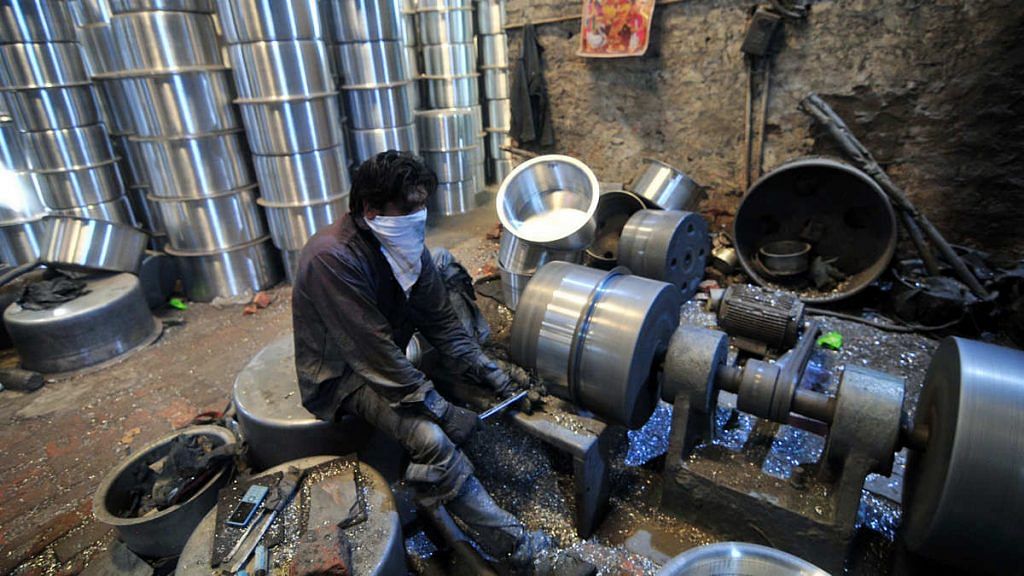New Delhi: Of the three labour codes passed in the Parliament Wednesday, the industrial relations code is the most important and reformist, said ThePrint’s Editor-in-Chief Shekhar Gupta in episode 575 of ‘Cut The Clutter’.
The three codes centre around industrial relations, occupational safety, health and working conditions, and social security. A fourth related labour code on wages was passed in August last year.
Gupta noted that the day the codes were passed in Lok Sabha and Rajya Sabha, the Opposition was not present as they were boycotting the Parliament.
However, these bills have gone through a full committee process. They were presented in 2019 and went to Parliament’s committee on labour, which has 31 members. Out of these, 16 are from the BJP and three from Congress, including senior leader Oscar Fernandes.
The committee had suggested 100 changes in the original laws drafted by the government, of which 74 are now implemented.
Since labour is a concurrent subject, the central government can design laws and states can pass laws and at this point there were 40 odd central laws and 100 odd, or even more, state laws.
In 1999, Atal Bihar Vajpayee’s government set up the second national labour commission, headed by Ravindra Varma, a former Congress leader. The commission recommended that all the labour laws must be combined into four or five codes.
Twenty nine of the over 40 central laws on labour were subsumed into these four codes, which also includes various aspects of the remaining law. The new wages codes subsumes four important laws on safety and health, while the working conditions code subsumes 13 laws, and social security code combines nine laws.
The industrial relations code subsumes three existing laws — the Trade Unions Act, 1926, the Industrial Employment (Standing Orders) Act, 1946, and Industrial Disputes Act, 1947.
Also read: Easy to fire workers, social security for migrants, gender equality — 3 labour codes decoded
The reforms
The government and those supporting the new codes have said that the simplification of the existing plethora of laws is a reform in itself, noted Gupta.
“These reforms take away the redundancy of multiple educator forums, particularly in labour law disputes. Now there will only be two forums — a conciliation officer and tribunal,” he said.
Another important change is that now women can work any number of hours with consent and necessary precautions as opposed to earlier laws that barred women from certain activities and night time work hours as it was seen to be hazardous.
Labour laws and protections have been extended to contract, temporary, migratory, contract and casual workers. This also includes freelancers, also known as gig workers, and platform workers — those who provide services using online platforms, such as delivery personnel working with food aggregators like Zomato and Swiggy and cab drivers with aggregators such as Ola and Uber.
The Bharatiya Mazdoor Sangh, the labour wing of the RSS, issued a statement criticising the industrial relations code for being pro-employer.
According to this code, the definition of a company that has to seek a government’s permission before shutting down was increased to one which has more than 300 employees. Earlier, companies with more than 100 employees had to seek a government license to shut down.
Secondly, under the new code companies employing upto 300 workers will not be required to frame standing orders for its workforce anymore. Standing orders are essentially the rules of conduct for workers employed in industrial establishments.
“These codes weren’t railroaded like the agricultural bills, although Opposition wasn’t present in the Parliament. The new codes simplify things by combining contradictory laws into four codes. It helps workers from the unorganised sector and, most important, it helps employment generation by giving employers a little bit more freedom than they had before,” Gupta said.
Watch the latest episode of CTC here:
Also read: Economists must stop looking at rural India as just labour supply tool post Covid: Yunus
